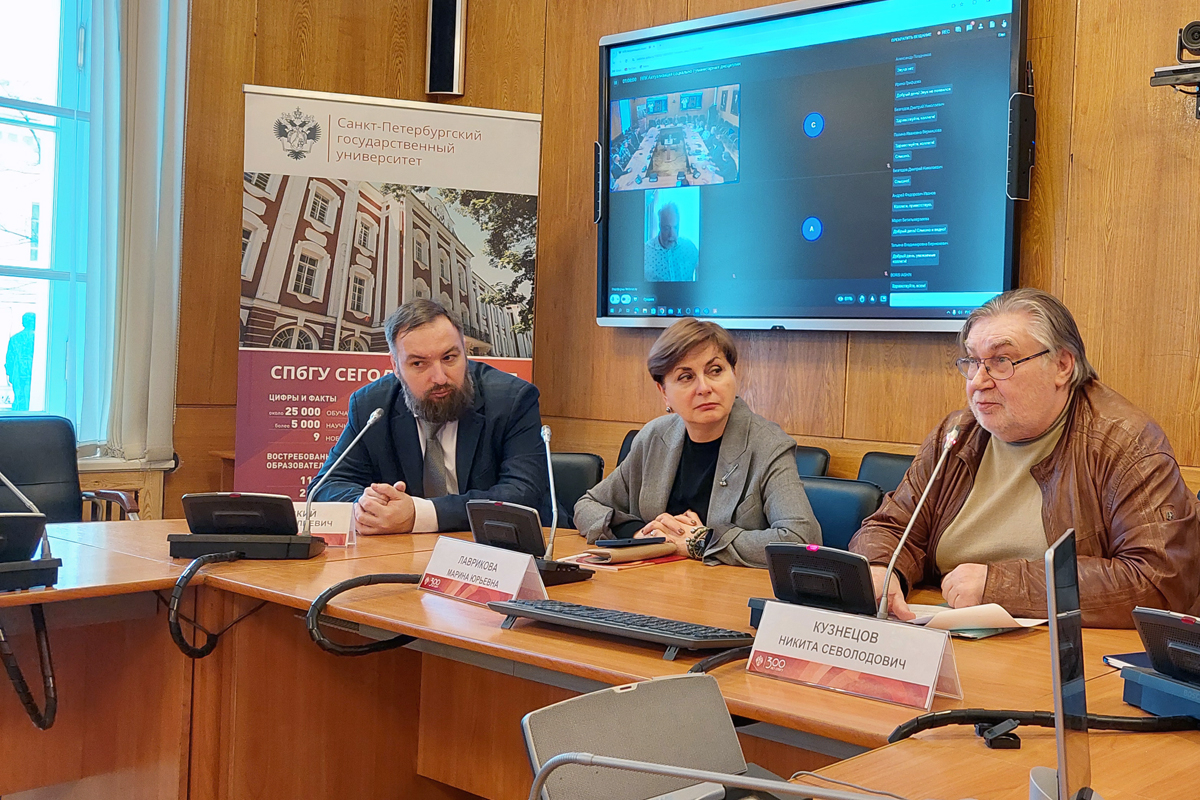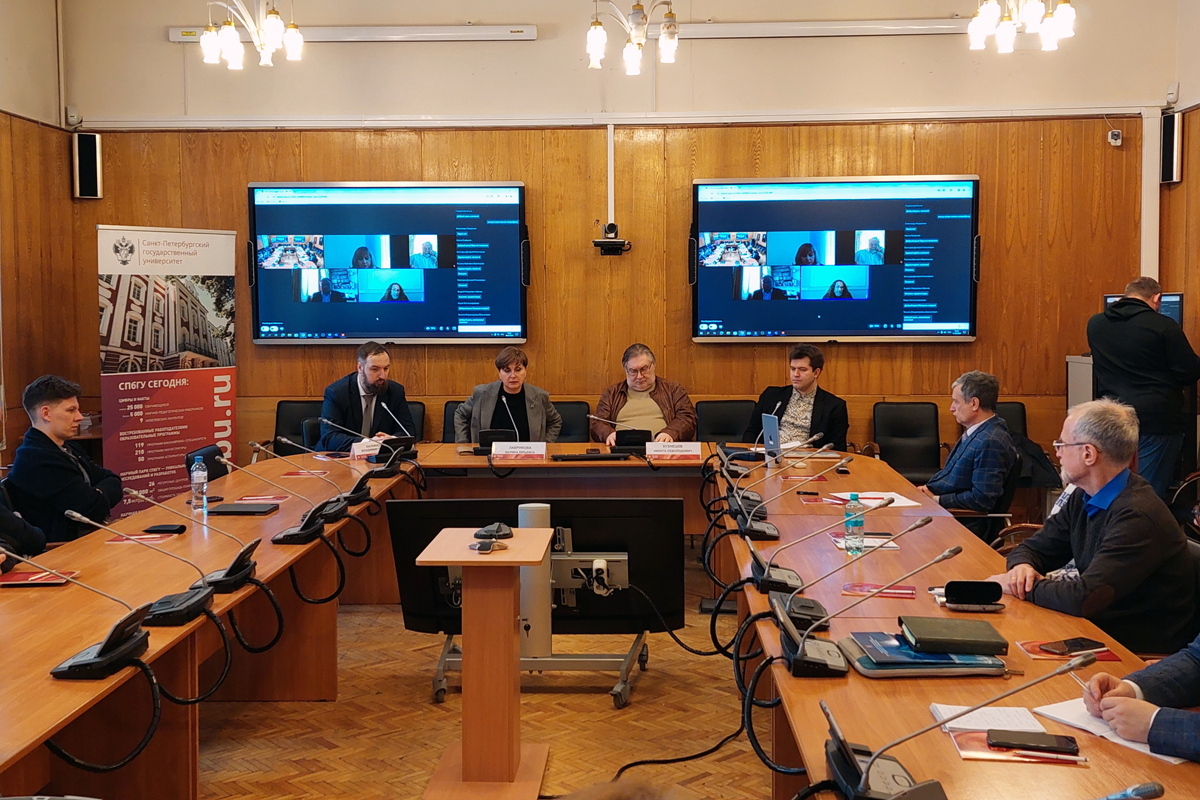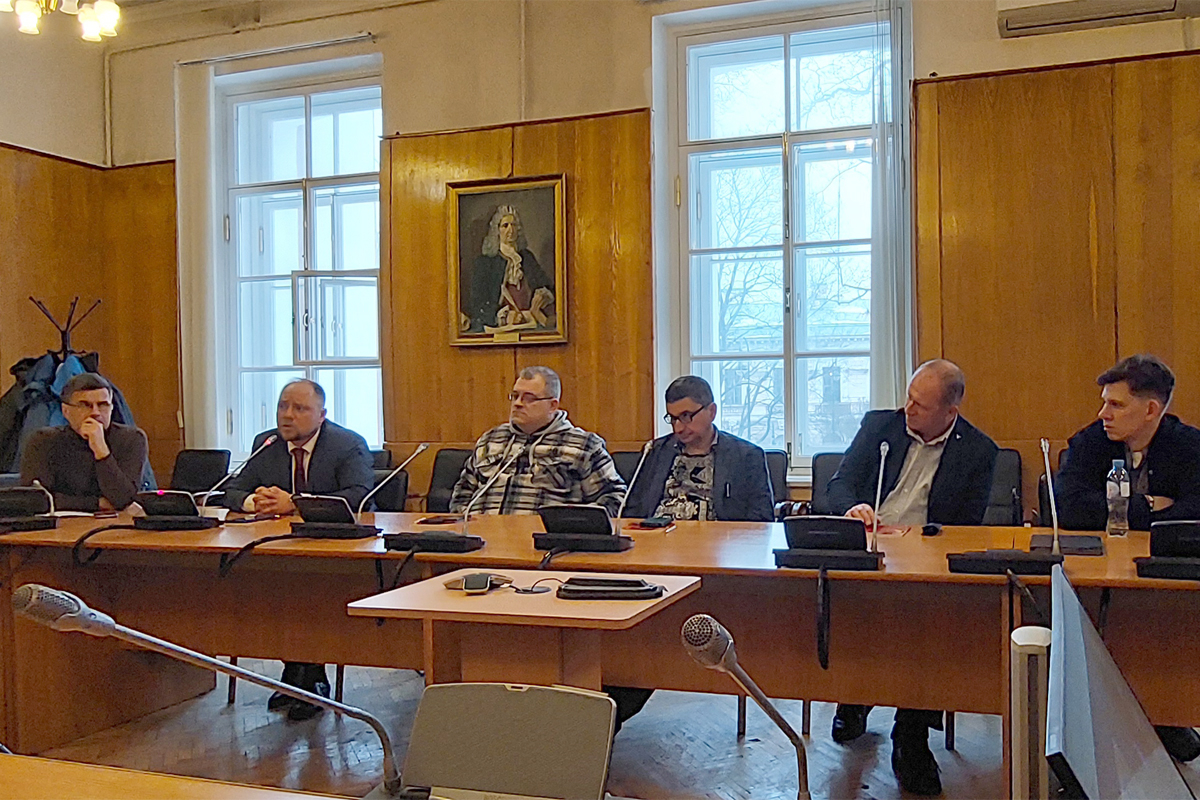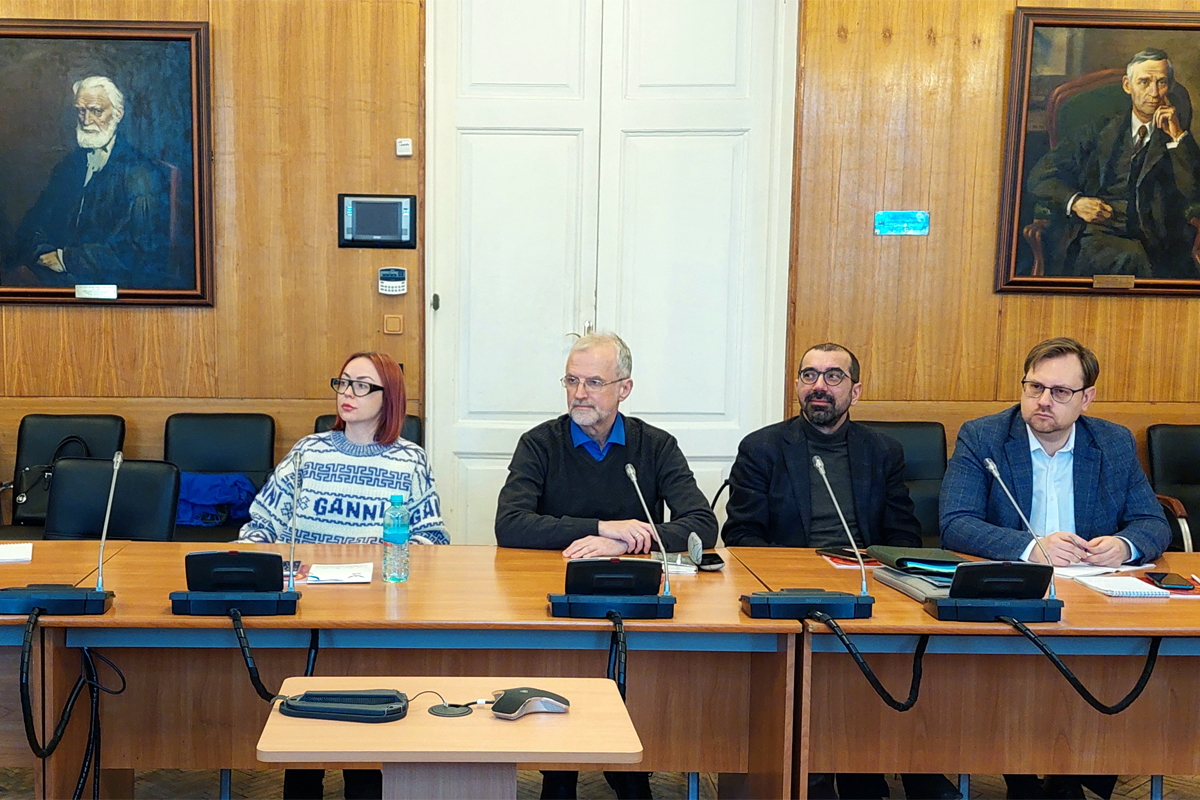St Petersburg University experts propose a new concept for teaching philosophy at university
St Petersburg University has held the scientific and practical conference ‘Updating social and humanitarian disciplines. Philosophy’, where experts discussed a new concept of how to teach the discipline ‘Philosophy’ at university. The concept was developed and proposed by St Petersburg University.
The conference brought together Marina Lavrikova, Senior Vice-Rector for Academic Activities at St Petersburg University; Olga Petrova, Deputy Minister of Science and Higher Education of the Russian Federation; Andrey Polosin, Research Supervisor of the DNA of Russia project; Vladimir Kalinovsky, Head of the Support Methodological Centre at St Petersburg University; and Nikita Kuznetsov, Director of the Institute of Philosophy at St Petersburg University and a moderator of the conference.
Philosophy and socio-humanitarian disciplines are essential for shaping the worldview of students, all experts unanimously agreed. In this regard, it is necessary to develop a unified concept how to teach these disciplines at university. To this end, Russia’s largest universities opened centres for methodological support as part of the DNA of Russia project, said Andrey Polosin. The first stage of this project was set to develop the course ‘Fundamentals of Russian Statehood’ by the centres, which was successfully completed. Engaging academic staff in developing and discussing the aspects that experts propose to add to educational and methodological documentation is essential to enable them to propose components of the teaching these disciplines, not just participate in the relevant discussions, said Andrey Polosin.
According to Marina Lavrikova, Senior Vice-Rector for Academic Activities at St Petersburg University, it is important to gain a deeper understanding of how to inspire and motivate students to study philosophy at university. Along with classical teaching methods, it is necessary to use new forms and methods.
‘The course “Fundamentals of Russian Statehood” enabled us to gain rich collective experience. The Russia’s academic community has become more active to discuss an issue of how to teach such a difficult discipline to students, taking into account all the problems associated with differences between generations and approaches to how interpret our history,’ said Marina Lavrikova. ‘The case with the course “Philosophy” is much more complicated. We must find a measure of what is necessary and sufficient in order to convey fundamental philosophical knowledge to students and provide them with an additional opportunity to study related topics as part of other courses.’
Forming a system of knowledge, skills and competencies, values and norms of behaviour associated with the awareness of belonging to Russian society, fostering a sense of patriotism and citizenship, and developing a spiritual, moral and cultural foundation to bring up a holistic, mature and fully developed personality who is able to assess historical paths of development of Russian culture should be underpinned by the concepts, ideas and approaches to the fundamental problems in philosophy, with opportunities to explore various philosophical traditions of the East, West and Russia, said Nikita Kuznetsov, Director of the Institute of Philosophy at St Petersburg University.
Although the course is based on history and philosophy, it should not be reduced to the history of philosophy only. The St Petersburg University’s concept of the course ‘Philosophy’ for non-philosophical degrees shifted the focus away from the traditional disciplinary approach to a thematic rubric of the material divided into eight thematic sections. Each of them includes lectures and seminars to discuss specific subjects of philosophical reasoning, i.e. the essence of what the truth, goodness, and beauty are. Students will be introduced to the central concepts, problems and approaches in the Western, Eastern and Russian philosophical traditions, study their conceptual apparatus, understand and assess their specifics, and discuss arising problems.
This approach enables students in non-philosophical degrees to develop a keen interest in philosophy as a personal questioning about the most essential concepts and problems of life. This contributes to solving the problem of forming a holistic worldview among students that corresponds to the current state of philosophy in the world.
Nikita Kuznetsov, Director of the Institute of Philosophy at St Petersburg University
According to Nikita Kuznetsov, Professor of St Petersburg University, this approach enables us to fully comprehend the traditional spiritual and moral values set out in the Executive Order of the President of the Russian Federation ‘On approving fundamentals of state policy for preservation and strengthening of traditional Russian spiritual and moral values’ and therefore solves the problem of forming Russian values of civil identity among students, awareness of the country’s single cultural space, ideas about the unique manifestation in the spiritual, historical and cultural development of the multinational peoples of Russia.
The plenary session presented a draft concept of the course ‘Philosophy’, with particular emphasis on introducing a value vector in the teaching of socio-humanitarian disciplines. The project was presented by Professor Nikita Kuznetsov and Associate Professor Aleksandr Lvov. In December 2023, the project was successfully presented at the conference ‘Philosophy and foundations of the Russian statehood: current practices in the context of the development of socio-humanitarian education’ at St Petersburg University. It was also discussed at the conference ‘Knowledge. State. Social sciences’, held in Moscow as part of the DNA of Russia project. The content of the course is underpinned by two courses ‘Philosophy’ for bachelor’s students in non-philosophical areas of study at St Petersburg University and other universities. These courses were prepared by the Institute of Philosophy at St Petersburg University and tested on the national platform ‘Open Education’.
The discussion brought together Vitaly Averyanov, Deputy Chairperson of the Izborsky Club; Dmitry Bogatyrev, Rector of the Russian Christian Academy for the Humanities named after Fyodor Dostoevsky; Vadim Vasiliev, Chairperson of the Federal Educational and Methodological Association for philosophical sciences; Aleksei Voskresensky, Director of the Institute of Human Philosophy at Herzen University; Ilya Dokuchaev, Head of the Department of Ontology and Epistemology at St Petersburg University; Aleksandr Lvov, Head of the Department of History of Philosophy at St Petersburg University; Eugene Makovetsky, Professor of St Petersburg University; Roman Svetlov, Director of the Higher School of Philosophy, History and Social Sciences at Immanuel Kant Baltic Federal University; and Aleksei Sokolov, Head of the Department of Social Philosophy and Philosophy of History at St Petersburg University.
The plenary session was followed by a meeting of the working group to discuss specific blocks of issues relating to the presented concept. Apart from the speakers at the plenary session, it brough together members of the Support Methodological Centre at St Petersburg University, i.e. philosophers, historians, philologists, and lawyers; representatives of the Russia’s leading universities; and experts in philosophy.
Central to the conference ‘Updating social and humanitarian disciplines. Philosophy’ is a practice-oriented approach, said Vladimir Kalinovsky, Head of the Support Methodological Centre at St Petersburg University. The conference was held in a series of similar events organised in February in all major universities across the Russian Federation, he added. The main objective is not just to discuss the problems of how to teach philosophy at university. The experts try to offer a universal concept to the university community, which will underpin a methodological support for the course of philosophy. To this end, presentation materials were sent to all conference participants to collect and take into account the opinions of educators of philosophy to further develop the concept proposed by St Petersburg University to apply it in teaching practice at universities across Russia.





